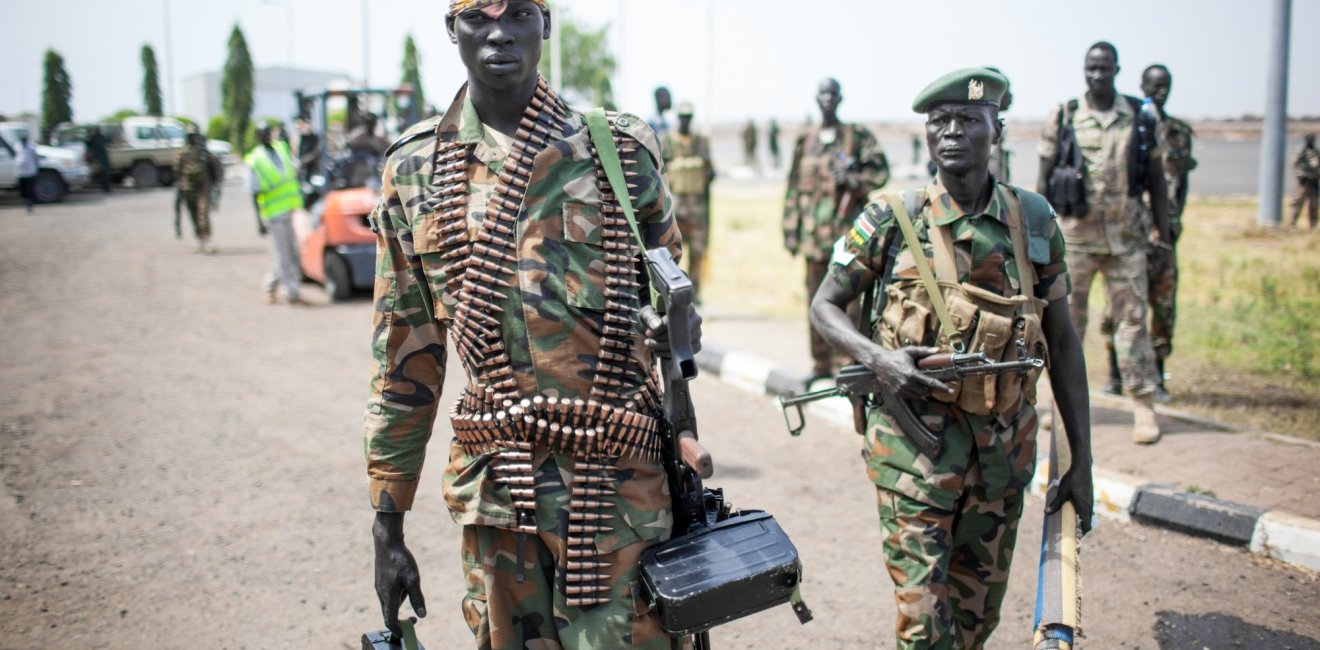Sudan’s civil war has attracted various foreign actors to support one side against the other. In some cases, historically known allies are divided between the main warring sides. More than ten countries in Africa, the Middle East, and Asia are known to have taken part in Sudan’s war, making it one of the region’s many proxy conflicts.
These countries are Egypt, Saudi Arabia, Iran, Qatar, Algeria, Libya, the UAE, Turkey, Ethiopia, Eritrea, Russia, China, Chad, and South Sudan. Saudi Arabia has hosted several peace talks between the two warring sides in the city of Jeddah, but it is said that Riyadh is supporting the Sudanese Armed Forces (SAF) in this war, contrary to its ally, the UAE, which supports the Rapid Support Forces (RSF).
Egypt, Ethiopia, Saudi Arabia, and UAE
Sudan’s African neighbors also have considerable sway over the situation. To the east, Ethiopia and Eritrea are now supporting the paramilitaries of the RSF, which recently fought alongside Ethiopia against the Tigray People’s Liberation Front (TPLF), which in turn is supporting the Sudanese Armed Forces (SAF). Other former rebel groups in Darfur and armed groups in eastern Sudan are fighting alongside the RSF. The head of the Beja Conference, Mussa Mohamed Ahmed, the advisor to former president Omer El-Basher, is backing the SAF. He recently just returned from Eritrea after spending months among his remaining troops and recruits; most hail from his ethnic group of El-Beja tribes.
Egypt, for historical reasons, has always supported the Sudanese army, which was founded during the British-Egyptian colonial administration more than 100 years ago. At the time, the Sudanese and the Egyptian armies were founded as one body. Now, the Egyptian air force has been accused of intervening in Sudan by the head of the Rapid Support Forces, Mohamed Hamdan Daglo Hemedti, in his latest speech on 10 October following the group’s defeat in Jabel Moyia in the province of Sennar.
The Grand Ethiopian Renaissance Dam—fiercely opposed by Egypt—further complicated the issue. Cairo is standing with the SAF because it reportedly supports the TPLF rebels.
To the west, Chad, sharing more than 20 ethnic groups with Sudan, was accused of facilitating and delivering weapons from the United Arab Emirates using its eastern airports in the cities of Abeche and Um-Djaras, the hometown of the former president Idress Debye’ of the RSF; the two countries have denied the accusations. However, Sudanese army leaders and officials kept publicly repeating these accusations. Media reports and the United Nations have independently confirmed weapons are coming from the UAE to Sudan’s RSF.
The UAE also built a hospital in Abeche in eastern Chad for free medical services to the Sudanese refugees and Chadian people. Reports have suggested medical facilities in Eastern Chad have been used for military activities and smuggling weapons—doctors working there have told me that they have no idea about such military operations going on inside their medical facility.
South Sudan, which is entirely economically dependent on Sudan, has finally agreed with the two sides to guarantee the flow of its oil exports. Oil, which only passes through Sudan, represents about 90% of national income. The country received hundreds of thousands of Sudanese refugees fleeing the latest Khartoum war, the third after Chad and Egypt.
Russia, Ukraine, Turkey, and Iran
Russia and Ukraine paradoxically take the same sides in the war in Khartoum. Both support the SAF diplomatically and militarily. Russia continues to support Sudan’s regime as it has historically done at the UN Security Council. Ukraine’s backing of the SAF came in light of its opposition to the Wagner group, which supported the RSF before and after the war. The Wagner Group's involvement in the Ukraine conflict is evident.
A source at the army’s airbase in Omdurman, the twin city of the Sudanese capital, said that early in the war, Ukrainian teams came to their base to fix some of the fighter jets damaged by RSF weapons. The air force is the only advantage that the SAF has over the RSF, which has increased the number of its soldiers during the course of this war; its leaders alleged that they are now over a million strong.
Ukrainian and Russian fighters were seen in different parts of Sudan, both in Omdurman in government-controlled areas and Russian fighters were seen in El-Geneiana, the capital of West Darfur State.
Turkey has reportedly offered its famous Bayraktar drones to the army, and Qatar is also supporting the SAF. It is quite understandable why these two countries are backing the army, which now has Islamist factions fighting alongside it, such as the Al-Baraa Ibn Malik brigade. The former Omer El-Basher regime, which the Islamists backed, came to power in a coup and ruled for 30 years.
Iran, Sudan’s old ally, is back again after a few years of boycotting relations while El-Basher was still in power, but has since been restored by the SAF leader, Abdul Fattah Al-Burhan. Now, they are back to support the regular army, offeringthe Muhajir-6 drones, which helped push the RSF out from Omdurman’s strategic locations towards North Khartoum last year. Iranian elements are walking around in the stifling heat of Port Sudan hotels, Sudan’s new capital city, after the army and the sovereign council lost control of most of Khartoum at the beginning of the war last year.
Algeria has also offered fighter jets to the Sudanese army. It said that the country supports the SAF because the UAE, which supports the RSF, supports Morocco.
The impact of foreign intervention
As a result of interventions and support to Sudan’s warring parties, 11 million Sudanese people have been displaced from their homes, making it the world’s largest displacement crisis. Hundreds of thousands of civilians have been killed. Sudan is now facing the most significant famine in the world, making it currently the most catastrophic humanitarian crisis, according to the UN. The warring sides were both accused of committing ethnic cleansing and genocide, especially the RSF in West Darfur State’s El-Geniena.
Apart from the humanitarian impact, there is also a political impact; the interests of the different sides in this conflict have complicated the situation further and made any diplomatic or peaceful solution to the war more difficult.
For example, the SAF refused to participate in any talks in which the UAE was a mediator or even a supervisor, accusing the country of supporting its rivals. It also filed a complaint against that country and Chad at the UN Security Council.
The SAF has also rejected all the African initiatives to stop the war proposed by the Intergovernmental Authority on Development (representing the east and horn of Africa), African Union, Kenya, Uganda, and Ethiopia after accusing them of supporting their rivals.
The RSF is more flexible in this matter. It has accepted every initiative by any country wanting to stop the war in Sudan through peaceful and diplomatic discourse, except Hemeti's last speech, in which he accused Egypt of supporting the SAF and demanded that the country stop importing Sudanese products to its northern neighbor.
People believe that the harsh position of the Sudanese army comes from its Islamist elements, who believe that they can get rid of the RSF. Unless Abu Dhabi and Riyadh agree on how to end this conflict, many see it as prolonging war. All negotiations have failed so far because different countries have different interests and agendas.
The international community’s role has been very weak. The United States facilitated a temporary ceasefire to evacuate diplomats, their families, and other foreigners living in the country but ignored the issue of the war itself. Only then did it suggest peace talks in Jeddah with the Saudis. When talks failed, the United States insisted on having peaceful humanitarian corridors to deliver the aid, which, once secured, caused the Sudan issue to fade from the spotlight.
Notably, the two US presidential candidates never mentioned Sudan in their speeches during the campaign. The Sudanese and the African people now fear the Trump administration will ignore Sudan as it did in the past.
People in Sudan and the broader Middle East and Africa believe that the international community has totally ignored them and that the US outsourced its foreign policy in the region to its allies, such as the UAE and Saudi Arabis, to deal with the urgent issues on their behalf.
The views represented in this piece are those of the author and do not express the official position of the Wilson Center.
This post was originally released to MENA 360, a publication of the Wilson Center Middle East Program. It has been cross-posted to Africa Up Close by request and with permission of the Middle East Program.








